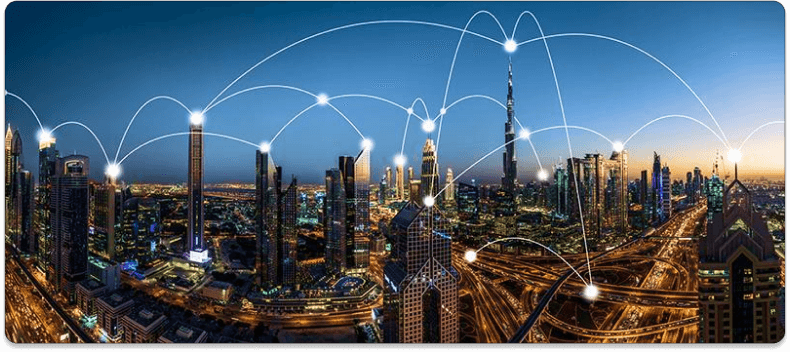By now, it is widely acknowledged that effective and smart data management can positively impact our ability to thrive, adapt, grow, and improve in such a complex world as the one we live in.
Recently, Abu Dhabi has offered an interesting example of how Big Data can be used to modernize our urban landscapes. A combination of innovative initiatives and the extension of their cycling network to more than 1000 km has gained the city the tag of “Bike City”. Now, with a smart cycling gambit that aims at optimizing cycling routes and improving the overall experience of moving around the city for bicycle users, Abu Dhabi is taking a huge step forward in improving its transport infrastructure.

Abu Dhabi: A Smart Cycling Project for a Smart City
Creating smart and safe cycling infrastructure is part of a wider strategy that focuses on making our cities more sustainable and environmentally friendly. Using Big Data, planners acquire valuable insights on cycling routes’ safety, conditions, usage frequency, and general performance. All this information can be leveraged to prioritize interventions and to make cycling safer, more effective, and more enjoyable.
How does it work exactly? As it is already done in some of the most important European cities -such as Dublin, Antwerp, and London-geo-trackers installed by cyclists on their individual bikes will allow the authorities of Abu Dhabi to do a traffic follow-up with extraordinary accuracy. An example of how this can be used to improve transportation can be seen in traffic lights. By optimizing their timing and improving their coordination, transportation planners can achieve a huge and positive impact on the city’s traffic – not only for bicycle users but also for those using other means of transportation.
Another input offered by smart cycling projects such as the one unfolding in Abu Dhabi is the ability to identify high-traffic bicycle areas and spot zones in which accidents are more likely to happen. With this information, cities can significantly reduce future incidents by designing and creating appropriate bike lanes or suggesting alternative routes.
Enhancing cycling infrastructure and developing smart cycling initiatives aim at making a city more friendly for bicycle users. But the effects of this go way beyond their experience. In the end, they are the ones that will inspire others to join the cycling tribe, thus contributing to making cities safer, less noisy, and more sustainable.

Big Data, a key ally for challenges ahead
Smart cycling technologies illustrate how Big Data can make a huge impact on important aspects of our everyday life. By granting transportation planners access to deeper insights into how people move around, they offer them better tools to imagine and develop solutions to improve a city’s infrastructure.
This is, of course, part of a trend that goes beyond. Today, companies, governments, and organizations all around the world are leaning more and more towards a data-driven culture. As we are all well aware, the world as a whole is facing critical challenges. We know for a fact that the steps we take today will have an impact for decades to come. And, in this context -as the example of smart cycling initiatives in Abu Dhabi shows us-, Big Data is revealing itself as one of our most powerful and reliable allies.
Collecting, managing, and interpreting data is the key to developing those strategies and making those key decisions that will shape not only our immediate future but the lives of upcoming generations.











